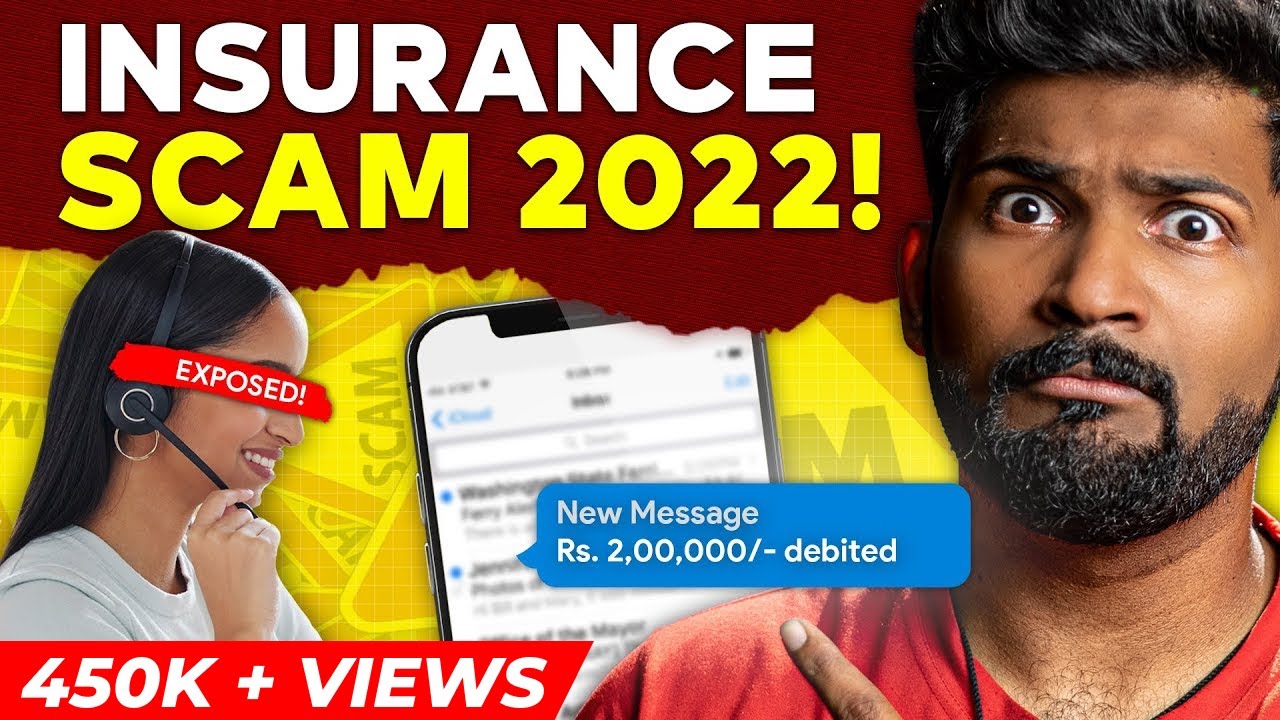i got scammed for $1,000,000
Summary
TLDRIn this video, the creator recounts being defrauded of a million dollars through an insurance scam. They explain how they purchased media insurance to protect against defamation lawsuits, a common risk in their line of original reporting. However, when faced with a lawsuit from Logan Paul, they discovered their new policy had an exclusion clause for defamation, rendering their insurance useless. Despite paying significant premiums, they were left to fend for themselves, leading to a frustrating and costly ordeal. The creator now faces the dilemma of potentially suing their own insurance company, while also resorting to selling merchandise to recoup losses.
Takeaways
- 😱 The video creator was scammed for a million dollars due to a misunderstanding with their insurance policy regarding defamation lawsuits.
- 📺 The creator had media insurance, specifically for defamation, as a precaution for reporting on wealthy individuals who might sue for defamation.
- 💡 The idea to get insurance came from another YouTuber's experience with a lawsuit, emphasizing the importance of being prepared for legal battles.
- 📈 The insurance premium increased over time as the channel grew and was perceived as a higher risk by the insurance company.
- 📑 The insurance policy had a fine print exclusion for defamation claims, which was not noticed until the creator tried to file a claim.
- 🤔 The creator questioned the roles of the insurance broker and underwriter in not highlighting the exclusion and whether they should have read the entire policy themselves.
- 💸 The creator paid tens of thousands of dollars for insurance that ultimately did not cover the specific risk they were concerned about.
- 🚫 The policy also had an exclusion for digital assets, which is a significant part of the creator's content.
- 🤝 The insurance broker admitted they were unaware of the policy's exclusions and that the underwriter may not have read through every line of the policy.
- 🔍 The situation has led the creator to seek legal advice, potentially against the insurance company that was supposed to provide coverage.
- 👕 As a result of the financial setback, the creator is now selling merchandise, such as shirts, to help recoup the losses.
Q & A
What type of insurance did the speaker initially have to protect against lawsuits?
-The speaker initially had media insurance or errors and omissions insurance to protect against defamation lawsuits.
Why did the speaker believe they were covered for defamation claims?
-The speaker believed they were covered for defamation claims because they had been covered by the same type of insurance in the past and had successfully used it to defend against such lawsuits.
What happened when the speaker contacted their insurance company to file a claim for the Logan Paul lawsuit?
-When the speaker contacted their insurance company to file a claim, the company refused to pay, citing an exclusion in the new policy that excluded defamation claims.
What was the speaker's reaction to the insurance company's refusal to cover the defamation claim?
-The speaker was confused and shocked, as they had specifically purchased the insurance to cover defamation claims, which they considered to be a part of errors and omissions in media.
How much did the speaker estimate they had paid in premiums for the insurance over its lifetime?
-The speaker estimated they had paid tens of thousands of dollars in premiums for the insurance over its lifetime.
What was the initial reason the speaker decided to get errors and omissions insurance?
-The initial reason the speaker decided to get errors and omissions insurance was advice from another YouTuber who had been in a lawsuit, emphasizing the need for protection against such legal actions.
How did the speaker's channel size affect the cost of their insurance?
-As the speaker's channel grew larger, the cost of their insurance increased significantly because the insurance company considered them a higher risk due to the increased visibility and potential for more viewers.
Why did the insurance company not renew the speaker's policy initially?
-The insurance company did not renew the speaker's policy initially because they felt the speaker had become a risk after using the insurance and they wanted to charge more for it.
What exclusions were found in the new insurance policy that the speaker signed?
-The new insurance policy had exclusions for defamation claims and coverage related to digital assets, which were the main topics of the speaker's content.
What actions did the speaker take after realizing the insurance policy did not cover what they expected?
-The speaker started talking to lawyers to explore their options against the insurance company and the broker, as well as selling shirts to help cover the costs of the lawsuit.
What was the speaker's final stance on the situation after some time had passed?
-After some time had passed, the speaker was able to appreciate the irony of the situation but admitted that they were initially very angry and unhappy about it.
Outlines

Cette section est réservée aux utilisateurs payants. Améliorez votre compte pour accéder à cette section.
Améliorer maintenantMindmap

Cette section est réservée aux utilisateurs payants. Améliorez votre compte pour accéder à cette section.
Améliorer maintenantKeywords

Cette section est réservée aux utilisateurs payants. Améliorez votre compte pour accéder à cette section.
Améliorer maintenantHighlights

Cette section est réservée aux utilisateurs payants. Améliorez votre compte pour accéder à cette section.
Améliorer maintenantTranscripts

Cette section est réservée aux utilisateurs payants. Améliorez votre compte pour accéder à cette section.
Améliorer maintenantVoir Plus de Vidéos Connexes

OK - Let's Tell The Scammer I Already Have The Money

THIS SCAM will COST YOU LAKHS | Insurance Scam EXPOSED | Abhi and Niyu

Foreign call centre raided over alleged links to scam tricking Australians out of super | 7.30

Não caia nessas FURADAS em SANTIAGO | ERROS comuns na viagem ao CHILE.

KENAPA PISANG DILAKBAN KE TEMBOK ADALAH SENI

How my website design helped a startup secure over $1M in funding
5.0 / 5 (0 votes)
